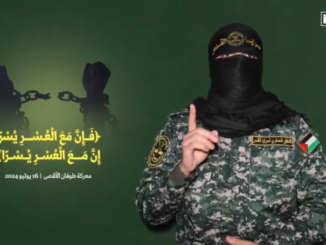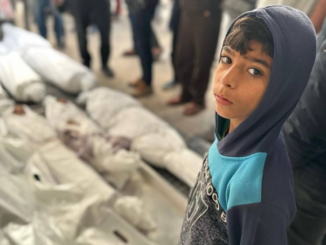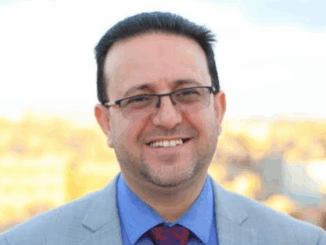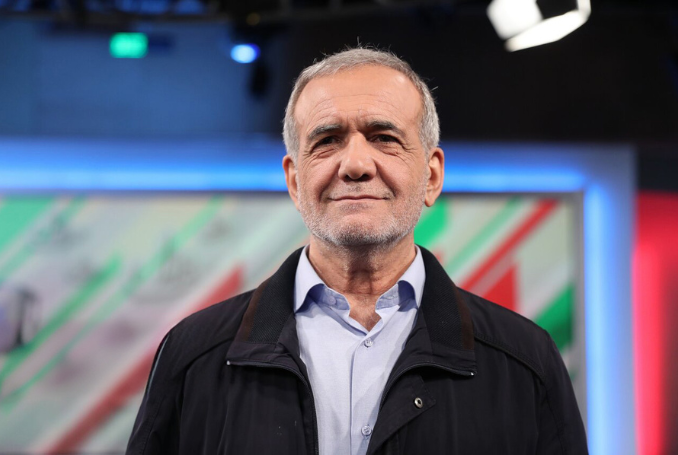
While issues such as Iranian relations with the West, the two camps do diverge, but the biggest difference is on domestic issues.
The newly elected Iranian President, Masoud Pezeshkian, was branded the “reformist” candidate in the run up to the national election that saw some 30 million people cast their votes, also sparking intrigue into his policy stances on the issue of Palestine.
Born in Mahabad, located in the West Azerbaijan province, Pezeshkian is a certified medical doctor who built a reputation for himself during the Iran-Iraq war, serving as both a soldier and in coordinating medical teams.
The 69-year-old is part of the “reformist” camp inside Iran, which has in the past taken rather different foreign policy stances than their “conservative” (hardliner in the West) opposition.
While issues such as Iranian relations with the West, the two camps do diverge, but the biggest difference is on domestic issues. Due to a lack of information made available in the English language media, most are misled in terms of their understanding of the divide between the two camps.
For instance, the Iranian so-called “hardliners” actually pursue socialist policies and are socially conservative (hence their designation), opposed to their reformist opposition that usually pursue more right-wing oriented economic policies.
Despite the differences, the reformist President-elect Masoud Pezeshkian remains a firm supporter of the Palestinian cause. In a letter that was sent to the political leader of Hamas, Ismail Haniyeh, the Iranian leader pledged that “(Iran) will continue to support the oppressed Palestinian nation until the realization of all its ideals and rights and the liberation of the holy al-Quds,” adding that he will continue to support the Palestinian resistance and said that “victory would be in the hands of dear Palestine.”
In an op-ed published for the Tehran Times, Masoud Pezeshkian also re-iterated the need for Iran to play a pivotal role in supporting the Palestinian people.
“The bitter events in the region are the result of the presence of the Zionist entity and the subversive policies of the West,” he said, adding that Israel is an aparthied regime, now committing a genocide and this comes from a regime with “a record already marred by occupation, war crimes, ethnic cleansing, settlement-building, nuclear weapons possession, illegal annexation, and aggression against its neighbors.”
In 2021, Pezeshkian was vocal about the need to support the regional resistance and its people, stating that “we say openly and we do not hide our aid to Palestine and Yemen and to any country. Whether they say or not, we will help”. This, as his support for the Palestinian cause reportedly dates back to his early years as a youth.
In a letter written to the Secretary-General of Lebanese Hezbollah, Sayyed Hassan Nasrallah, the President elect wrote that “the Islamic Republic of Iran has always supported the resistance of the people of the region against the illegitimate Zionist regime.”
‘Worse than Abu Ghraib’ – This is How Israel Tortures Its Palestinian Hostages
“The support of the resistance is rooted in the fundamental policies of the Islamic Republic of Iran”, he wrote, continuing on to state that “I am confident that the resistance movements in the region will not allow this regime to continue its warmongering and criminal policies against the oppressed people of Palestine and other nations of the region.”
Pezeshkian has also put forth a proposal to work on encouraging Iran’s regional allies and neighbors to work harder towards securing a ceasefire in the Gaza Strip.
Under his leadership, he hopes to strengthen ties with the Arab Gulf States, such as Saudi Arabia and the United Arab Emirates (UAE), hoping that this could create openings to aid in the ending of the war in Gaza and reconstruction efforts afterwards.
On top of this, the work that is currently being done by the Islamic Revolutionary Guard Corps (IRGC), in supplying, training, and funding the Palestinian resistance factions inside the Gaza Strip will not change.
Most of this support occurs completely separate from the Iranian President’s foreign policy agenda and the IRGC is set with a sophisticated approach that factors in both political and security developments. Even in the event that an Iranian President is elected with a separate strategy, the support for the resistance allies will continue.
Who Is Miriam Adelson? – Trump’s Billionaire Who Puts Israel before ‘America First’
It is also important to factor in the element that this support is provided to independent actors in the cases of Yemen, Lebanon and Palestine, not mere “proxies” as is often portrayed in the corporate media.
This means that the groups have their own autonomy and do not take direct orders from the Islamic Republic of Iran, but instead are allies and receive support, in addition to advice, on such a basis. As long as Tehran’s position remains in support of the Palestinian resistance and cause, relations between the IRGC and regional forces will proceed as usual.
(The Palestine Chronicle)
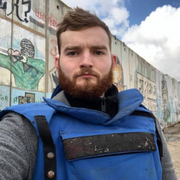
– Robert Inlakesh is a journalist, writer, and documentary filmmaker. He focuses on the Middle East, specializing in Palestine. He contributed this article to The Palestine Chronicle.

